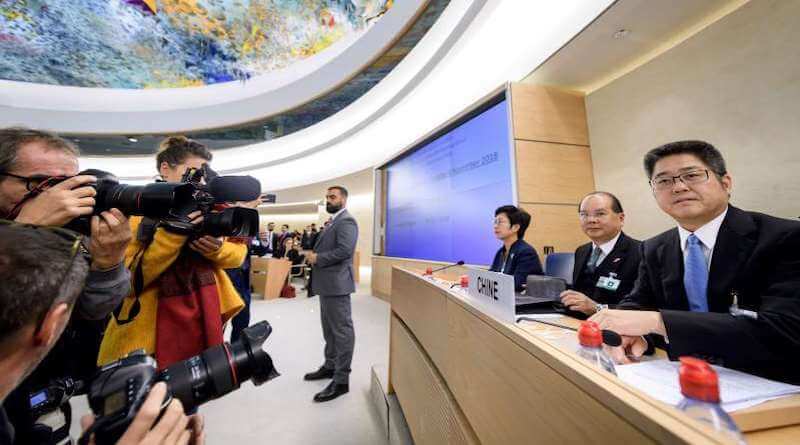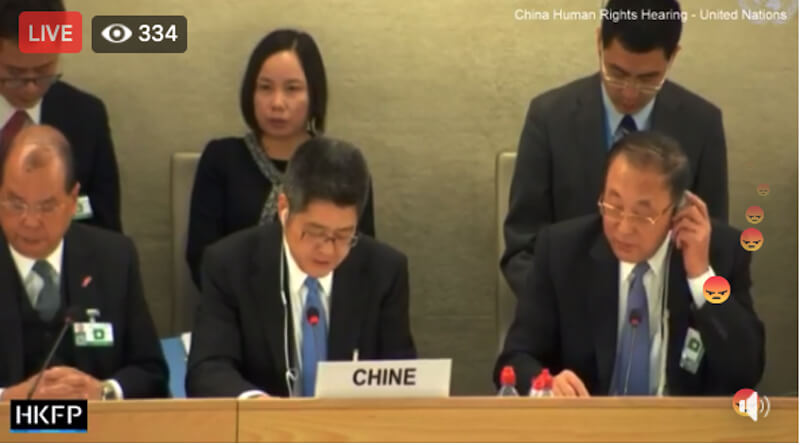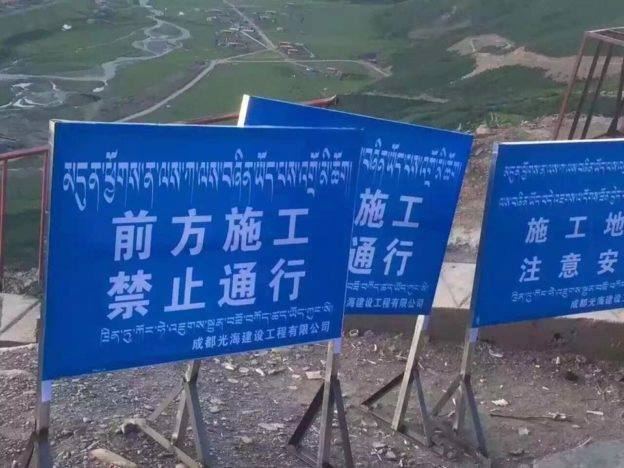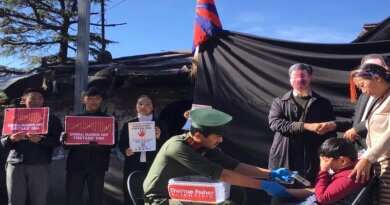China undergoes Universal Periodic Review at UN while thousands protested outside

DHARAMSALA, Nov 7: A dozen member states of the United Nations (UN) expressed concern over human rights violations in Tibet at the 31st session of the UN Human Rights Council, where China underwent its third Universal Periodic Review (UPR).
Australia, Austria, Canada, Denmark, France, Germany, Japan, New Zealand, Sweden, Switzerland, the United Kingdom, and the United States used the UPR to raise concerns about the decline in China’s human rights record. They particularly expressed concern over human rights violations in Tibet with nine member states making a total of 12 recommendations on Tibet at the review held yesterday at the Human Rights Council in Geneva.
This marks an increase from 2013 when only 11 recommendations were issued mentioning Tibet, and in 2009, there were four. China, like every UN member state, is subject to a review of its human rights record every 4.5 years.
The recommendations on Tibet included urging China to allow international observers into Tibet, respect Tibetans’ rights to freedom of religion and freedom of expression, and call for the release of Tibetan language advocate Tashi Wangchuk, who is serving a five-year prison sentence for “inciting separatism.”
New Zealand, in particular, reiterated a recommendation that it made at China’s last review in 2013 and called for the “Resumption of two-way dialogue on Tibet.”
While China underwent its third UPR, around 1,000 people, including Tibetans, Uyghurs, and supporters, marched through Geneva before holding a protest rally at Geneva’s landmark three-legged chair outside the U.N. Office.
Protesters reportedly carried banners condemning the internment of an estimated one million Uyghurs in Chinese prison camps and the lack of freedoms inside Tibet, which has resulted in more than 150 self-immolation protests since 2009. The group marched from Lake Geneva to the Broken Chair sculpture outside the Palace of Nations, the headquarters of the Human Rights Council.
The mass detention of and other abuses against the Uighur people were raised by a number of countries at the UPR today, along with abuses against Chinese people, such as the harassment and detention of human rights lawyers.
 However, Chinese authorities described the mass detention camps in China as “education and training centers” to reform “people influenced by extremism” and further rejected claims at the UPR about the deteriorating human rights situation in China, saying that some UN member countries were deliberately disregarding “the remarkable achievements made by China.”
However, Chinese authorities described the mass detention camps in China as “education and training centers” to reform “people influenced by extremism” and further rejected claims at the UPR about the deteriorating human rights situation in China, saying that some UN member countries were deliberately disregarding “the remarkable achievements made by China.”
Meanwhile, rights groups, namely Demosistō, Human Rights Watch, International Service for Human Rights, Nonviolent Radical Party, Transnational and Transparty Southern Mongolian Human Rights Information Center, Tibetan Centre for Human Rights and Democracy, Unrepresented Nations and Peoples Organization, Uyghur Human Rights Project, and World Uyghur Congress, have expressed deep concern over the removal of key stakeholder information by the UN Office of the High Commissioner for Human Rights for China’s UPR.
“The UPR process, undertaken through the UN Human Rights Council, explicitly welcomes constructive contributions from civil society to address human rights challenges and promote universal human rights norms. We are, however, dismayed by the fact that at least seven submissions were completely removed from consideration from the final document intended for UN member states to draft recommendations for China’s review,” the group said in its joint press release, a day ahead of China’s UPR.






